Filter by

Systems, Experts, and Computers: The Systems Approach in Management and Engin…
This study charts the origins and spread of the systems movement. It describes the major players - including RAND, MITRE, Ramo-Wooldrige (later TRW), and the International Institute of Applied Systems Analysis - and examines applications in a wide variety of military, government, civil, and engineering settings. The book is international in scope, describing the spread of systems thinking in Fr…
- Edition
- -
- ISBN/ISSN
- 9780262275873
- Collation
- 1 online resource (vi, 513 pages) :illustrations.
- Series Title
- -
- Call Number
- -
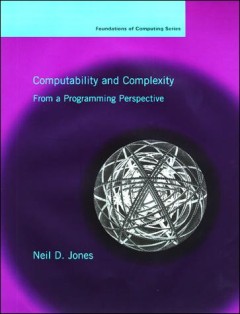
Computability and Complexity: From a Programming Perspective
OCLC-licensed vendor bibliographic record.
- Edition
- -
- ISBN/ISSN
- 9780262276368
- Collation
- 1 online resource (xvi, 466 pages).
- Series Title
- -
- Call Number
- -

Talking Nets: An Oral History of Neural Networks
A Bradford book."OCLC-licensed vendor bibliographic record.
- Edition
- -
- ISBN/ISSN
- 9780262267151
- Collation
- 1 online resource (xi, 434 pages) :illustrations
- Series Title
- -
- Call Number
- -

Understanding Intelligence
Researchers now agree that intelligence always manifests itself in behavior - thus it is behavior that we must understand. An exciting new field has grown around the study of behavior-based intelligence, also known as embodied cognitive science, "new AI," and "behavior-based AI."" "Rolf Pfeifer and Christian Scheier provide a systematic introduction to this new way of thinking about intelligenc…
- Edition
- -
- ISBN/ISSN
- 9780262256797
- Collation
- 1 online resource (xx, 697 pages) :illustrations
- Series Title
- -
- Call Number
- -

Code for what? :computer science for storytelling and social justice
"Challenges the 'Code for All' movement with a framework for critical computational literacy that integrates computer science with journalism, data, art, civic imagination, and social action"--OCLC-licensed vendor bibliographic record.
- Edition
- -
- ISBN/ISSN
- 9780262371841
- Collation
- 1 online resource
- Series Title
- -
- Call Number
- -
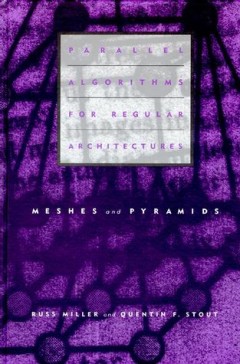
Parallel Algorithms for Regular Architectures :Meshes and Pyramids.
AnnotationOCLC-licensed vendor bibliographic record.
- Edition
- -
- ISBN/ISSN
- 9780262279833
- Collation
- 1 online resource (336 pages)
- Series Title
- -
- Call Number
- -

Independent component analysis : a tutorial introduction
"A Bradford book."Independent component analysis (ICA) is becoming an increasingly important tool for analyzing large data sets. In essence, ICA separates an observed set of signal mixtures into a set of statistically independent component signals, or source signals. In so doing, this powerful method can extract the relatively small amount of useful information typically found in large data set…
- Edition
- -
- ISBN/ISSN
- 9780262257046
- Collation
- 1 online resource (xviii, 193 pages) : illustrations
- Series Title
- -
- Call Number
- 006 STO i
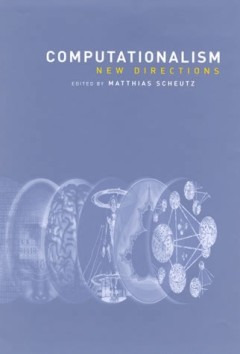
Computationalism: New Directions
A new computationalist view of the mind that takes into account real-world issues of embodiment, interaction, physical implementation, and semantics. Classical computationalism—-the view that mental states are computational states—-has come under attack in recent years. Critics claim that in defining computation solely in abstract, syntactic terms, computationalism neglects the real-time…
- Edition
- -
- ISBN/ISSN
- 9780262283106
- Collation
- -
- Series Title
- -
- Call Number
- 004 SCH c
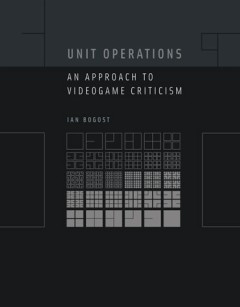
Unit operations : an approach to videogame criticism
In Unit Operations, Ian Bogost argues that similar principles underlie both literary theory and computation, proposing a literary-technical theory that can be used to analyze particular videogames. Moreover, this approach can be applied beyond videogames: Bogost suggests that any medium--from videogames to poetry, literature, cinema, or art--can be read as a configurative system of discrete, in…
- Edition
- -
- ISBN/ISSN
- 9780262268929
- Collation
- 1 online resource (xv, 243 pages)
- Series Title
- -
- Call Number
- -
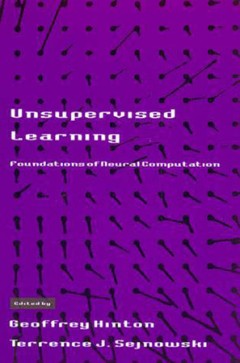
Unsupervised learning :foundations of neural computation
A Bradford book."OCLC-licensed vendor bibliographic record.
- Edition
- -
- ISBN/ISSN
- 9780262288033
- Collation
- 1 online resource (xvi, 398 pages) :illustrations.
- Series Title
- -
- Call Number
- -
 Computer Science, Information & General Works
Computer Science, Information & General Works  Philosophy & Psychology
Philosophy & Psychology  Religion
Religion  Social Sciences
Social Sciences  Language
Language  Pure Science
Pure Science  Applied Sciences
Applied Sciences  Art & Recreation
Art & Recreation  Literature
Literature  History & Geography
History & Geography